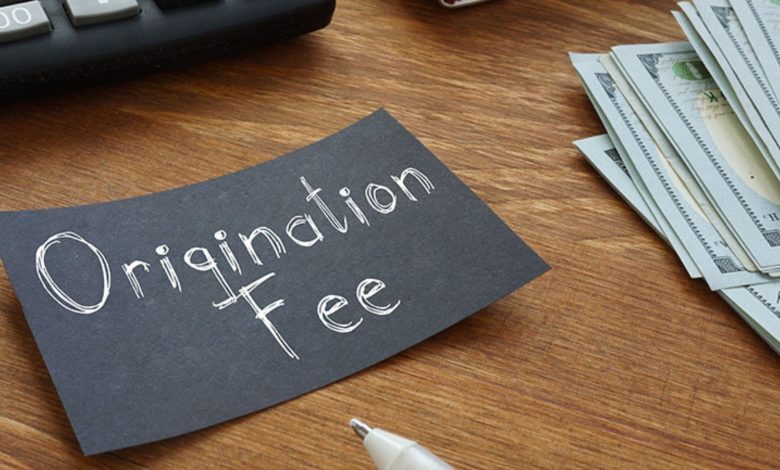
When it comes to taking out a loan—whether it’s a mortgage, business loan, or personal loan—understanding the origination fee tax implications is crucial for anyone looking to keep their borrowing costs in check and avoid headaches come tax season. The origination fee, sometimes called a lender origination fee or establishment fee, is a one-time charge that lenders impose for processing and approving your loan application. This fee is typically calculated as a percentage of your loan amount, usually ranging from 0.5% to 1% for mortgages, but it can be higher for other types of loans or in specific markets. While the origination fee covers essential services like application processing, credit checks, underwriting, and administrative work, many borrowers are left wondering: is the origination fee tax-deductible? The answer isn’t always straightforward, and it depends on the type of loan, how the fee is categorized, and your specific tax situation. In this comprehensive guide, we’ll explore everything you need to know about origination fees, their tax treatment, and how to navigate these charges to maximize your savings.
What Is an Origination Fee?
- An origination fee is a one-time, upfront charge by lenders to cover the costs of processing your loan application, including document preparation, underwriting, and administrative tasks.
- The fee is usually expressed as a percentage of the loan amount (often 0.5%–1% for mortgages, but can range up to 4% or more for other loan types).
- Origination fees are common with mortgages, personal loans, business loans, and sometimes student loans.
- The fee can be paid upfront at closing, rolled into your loan balance, or deducted from your loan proceeds.
What Does the Origination Fee Cover?
- Application review and processing
- Credit checks and financial assessments
- Underwriting (verifying income, assets, and property details)
- Administrative work and document preparation
- Compensation for loan officers and brokers

Are Origination Fees Tax-Deductible?
Mortgage Origination Fees
- In most cases, standard mortgage origination fees are not tax-deductible.
- However, if the fee is paid specifically as “points” (prepaid interest to lower your mortgage rate), it may be deductible as mortgage interest, provided certain IRS conditions are met.
- Fees for appraisals, inspections, title, legal, or administrative services are not deductible.
- Always check your closing disclosure to see how fees are categorized, and consult a tax professional if unsure.
Business Loan Origination Fees
- For business loans, origination fees may be considered a deductible business expense, often as an interest expense.
- Depending on the loan type and your accounting method, you may be able to deduct the full fee in the year paid, or you may need to amortize it over the life of the loan.
- Always consult with a tax advisor to ensure compliance with current tax laws.
Home Loans Outside the U.S.
- In some countries, such as India, origination fees are generally not tax-deductible, though interest paid on the loan may be.

How to Minimize Origination Fees
- Shop around: Lenders vary widely in their origination fee policies—some may offer lower fees, while others might waive them in exchange for a higher interest rate.
- Negotiate: You may be able to negotiate the fee with your lender, especially if you have strong credit or are a repeat borrower.
- Compare total costs: Weigh the impact of paying a higher fee upfront versus accepting a higher interest rate over the life of the loan.
- Check for add-ons: Review your loan estimate for additional charges bundled under “origination charges,” such as processing, underwriting, or tax service fees.
Key Takeaways
- Origination fees are a standard part of many loans, covering the lender’s costs for processing and approving your application.
- For most mortgages, origination fees are not tax-deductible unless paid as points to reduce your interest rate.
- Business loan origination fees may be deductible as a business expense, but check with your tax advisor for details.
- Always review your loan documents and closing disclosures to understand exactly what you’re paying—and why.
FAQs
Q: Are mortgage origination fees tax-deductible?
A: Generally, standard mortgage origination fees are not tax-deductible, unless they’re paid as points to lower your interest rate and meet IRS requirements.
Q: Can I deduct business loan origination fees on my taxes?
A: Yes, business loan origination fees may be deductible as a business expense, but you may need to amortize the deduction over the life of the loan. Always check with a tax professional.
Q: What’s the difference between origination fees and points?
A: Origination fees pay for processing your loan, while points are prepaid interest to lower your mortgage rate. Only points may be tax-deductible as mortgage interest.
Q: Can I negotiate my origination fee?
A: Yes, many lenders are open to negotiation, especially if you have a strong credit profile or are a repeat customer.